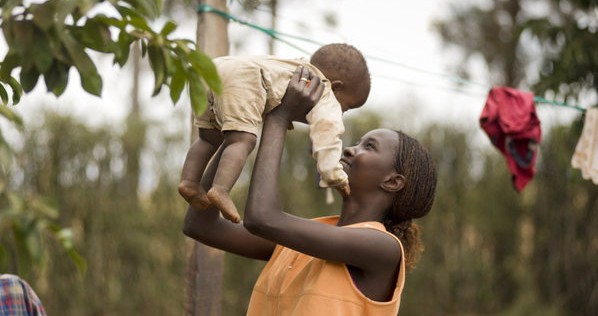
Maternal and child death rates fell in every one of the poorest 49 countries in the world between 2010 and 2013, largely as a result of a U.N. initiative launched in 2010, the world body said this week.
“The world is currently reducing under-five and maternal deaths faster than at any time in history,” U.N. Secretary General Ban Ki-moon said in a statement. “Since 1990, maternal deaths have been cut by almost half; some 17,000 fewer children die each day.”
East African countries saw particularly strong progress, with child death rates falling by 14.9 percent or more in Mozambique, Rwanda, Tanzania, Kenya and Uganda, the U.N. said in its new report, “Saving Lives, Protecting Futures.”
There was also good news from Haiti, which had an under five mortality rate of 17.4 percent in 2010 when the island was devastated by an earthquake. This plummeted to 7.3 percent in 2013.
Falls in maternal mortality were most pronounced in Afghanistan, where the rate fell 20 percent between 2010 and 2013, and in Zimbabwe, which saw a fall of 22.9 percent.
Overall, the deaths of 2.4 million women and children have been averted since 2010, the report said. The U.N. credits its ‘Every Woman Every Child‘ (EWEC) initiative, part of the broader Global Strategy for Women’s and Children’s Health, with the reduction in deaths. The strategy was launched by Ban in 2010.
EWEC takes the form of a global public health partnership between governments, NGOs and the private sector.
There have been “substantial increases” in oral rehydration therapy, exclusive breastfeeding and preventing mother-child HIV transmission, the report said, with “important gains” in family planning, antenatal care, skilled birth attendance and postnatal care.
But two other goals, care for pneumonia and expanding childhood vaccines, have seen “limited progress.”
“There is still too much needless suffering,” Ban said.
The initiative has now set its sights on ending all preventable deaths of women and children. To achieve that, Ban said it will be necessary to “go beyond the health sector and partner with those working on education, women’s empowerment, energy, nutrition, water and sanitation.”
“With the momentum we have built and the lessons we have learned since 2010, we now have an unprecedented opportunity to dramatically improve the lives of women and children,” Ban said. ” [W]e can realistically end the preventable deaths of women and children within a generation wherever they live.”
